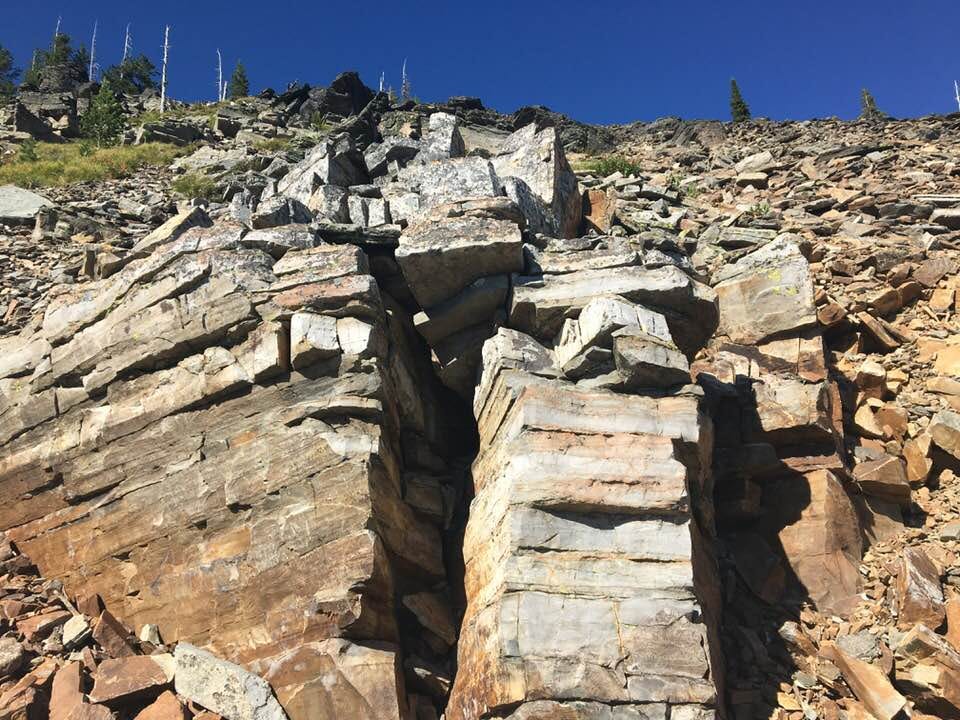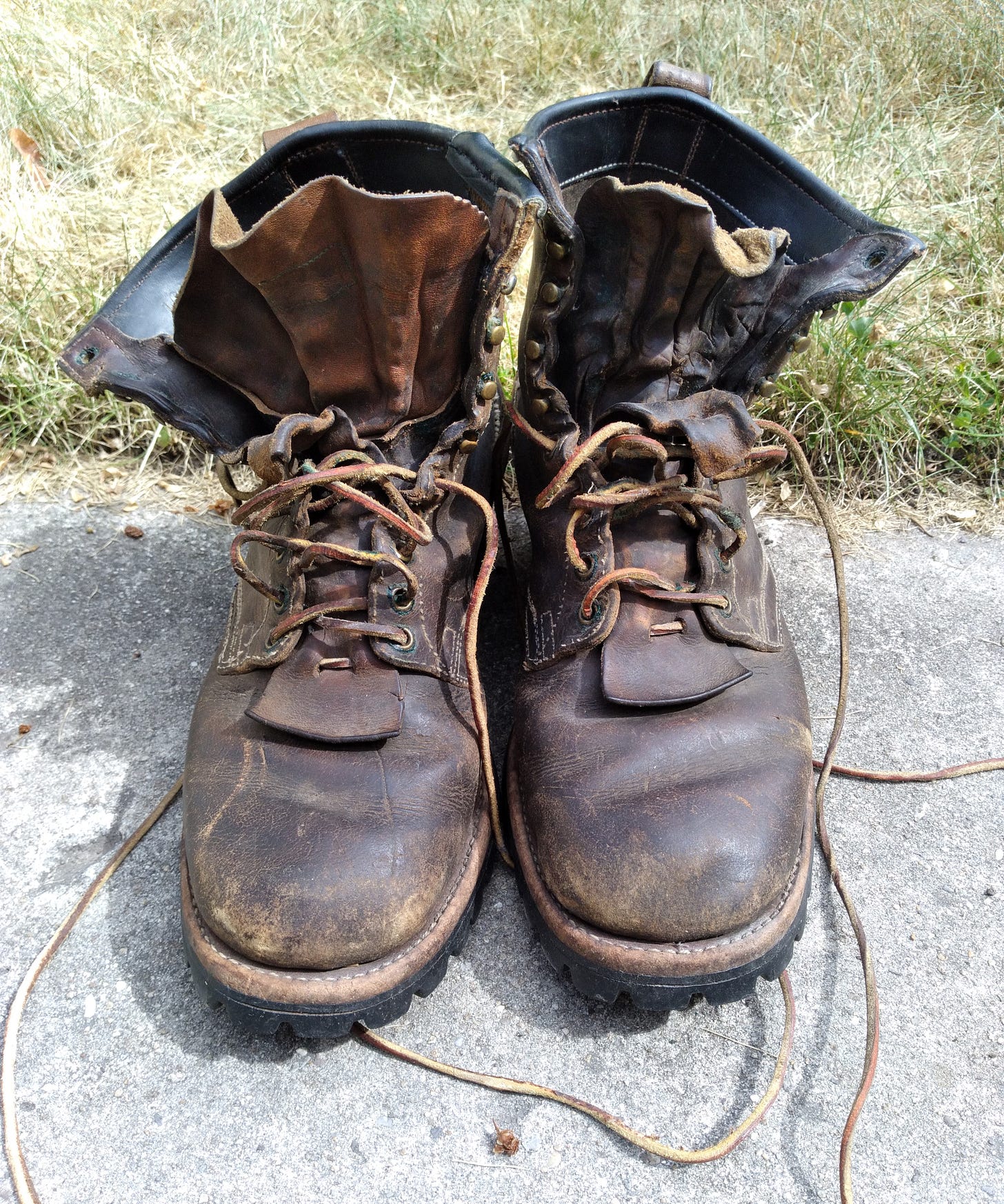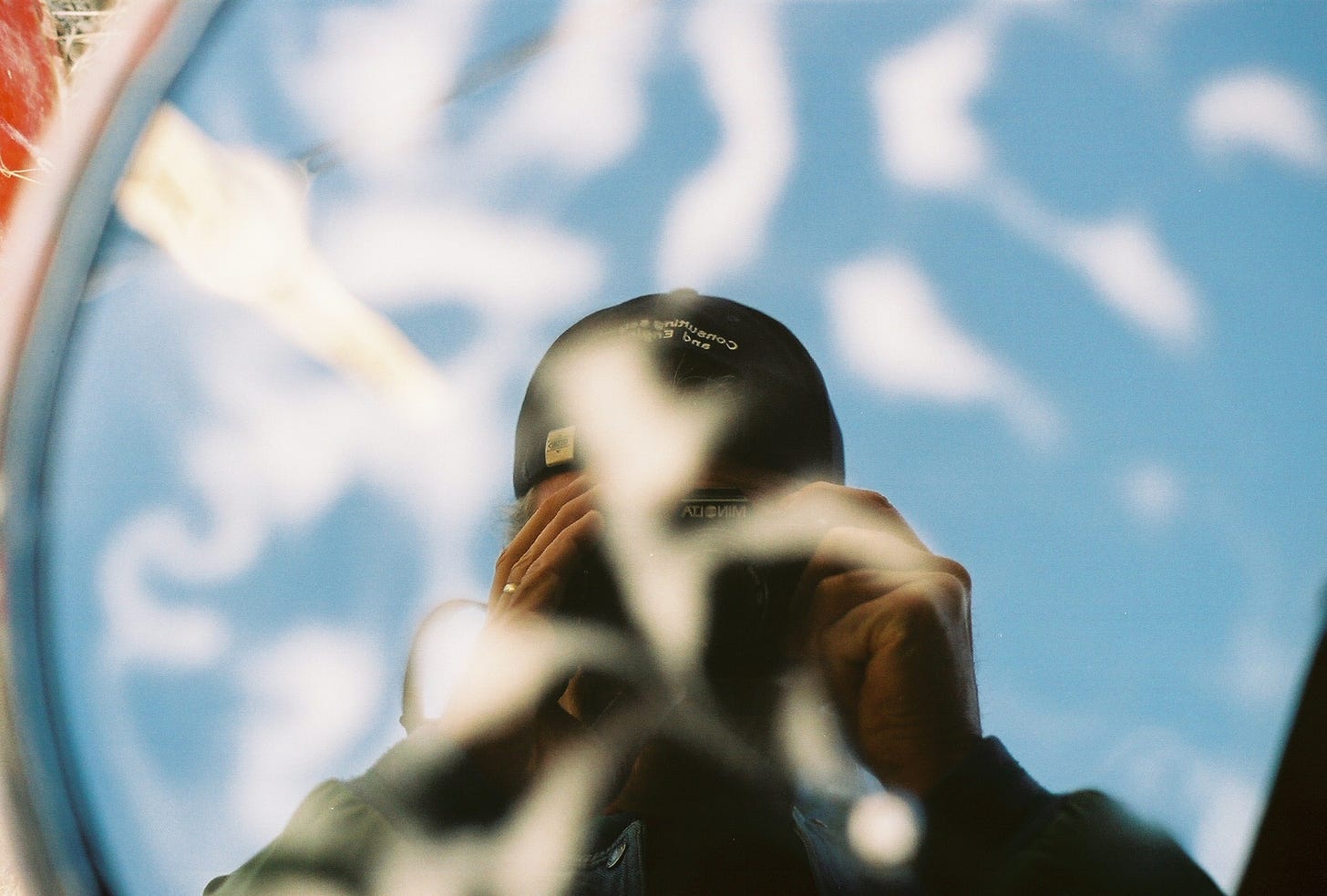The Meaning of Life The earthy gravity of Seamus Heaney's poems and the sweet taste of John Powers whiskey mixed with a few foot-surgery Percocets could explain the face droop I feel, the heavy shallow breaths, but on top of the dumb-slow hours of pain and recovery, it was the blind pick-up (no caller ID) and the pace and tone of my niece's voice that foretold the tale ahead of the words: her father, the Little Hungarian, had left to find my sister, his Bull-headed Irish lover (gone now for not quite a year) and tend the roses of their garden in paradise. And however you want to spin it, your metaphor about what happens after we die, I can testify to their story here, a love story for over half a century, one glass half-empty, one glass half-full, they were a team who'd thrown in together for better or worse. It was a hell of a ride. True opposites. They never gave up on each other. Call it love, commitment, ignorance, or fear. Call it what you want. Year after year they kept trying to keep a full-glass together. The meaning of life is in the living.
I have worked at various jobs in my life because that's what I had to do to get money to have a place to sleep and eat and keep my shit, and pay for all the things I needed to pay for, what I wanted to do or felt I should take care of for myself and others. In other words, “working” meant being a member of the team, the social club that was my community and culture. How did that existence, that mindset, that basic economic reality change into this obsessed culture of wanna-be-wealth that corporations have perpetrated and literally sold to the American people through advertising propaganda on mass media 24/7, driving generations of impressionable consumers to live for the promise of a richly virtual reality?
The life I knew growing up and living as a young adult has all but disappeared. There is no living on the cheap anymore. There is no time to be “wasted” on spending the day in the woods, on the river, digging in the dirt, reading a book under a tree, writing a poem on a windy ridge-top, watching a hawk hunt the field. Those kind of activities must be reserved for that promised vacation, the one that takes thousands of dollars and days of preparation and navigation to pull off in a time-panic of hitting the marks.
I miss that culture where I walked out my front door into nature. That was a normal activity that cost nothing but my attention. It was a place to go, to be there and in my head, a place to go to be myself, whoever I was. A place to try and discover things about the world around me. It had nothing to do with money and most likely nothing to do with what I was doing for work. Those folks whose work took them into locales of nature, solitude, or those alleyways and laboratories in their minds were lucky sons-a-bitches “for my money!” And there it is again. We never get far away from defining ourselves by what we do for money because in this corporate-capitalist economy we are nothing compared to what we do for money. That most important question we get upon meeting someone new, “So whatta ya do for a living?” we know has everything to do with economics.
Camp Tender $100 per day—four days (plus tips) Setting up, breaking down, moving camp Along the Clark Fork River Campfire, cooking, serving, clean up For five clients and crew How bad could it be? It sounded good to me Outside by the river Wood smoke under the stars A drive, a little fishing All the grub, beer, and weed You could handle—I figured I could handle that “I’d like a basin of warm water To wash up when I get off the river.” “Make that three fingers of George, Mr. Dickel, on ice, and I’d appreciate it If you’d leave yours out of it.” “Excuse me, friend, that’s too cool For medium rare. Now cook it some more, But try to keep it out of the fire.” “Find some level ground tonight To pitch my tent. I hardly slept a wink Last night, and I believe a bottle Of Johnny has gone missing here. I should have another fifth of Johnny Because I paid for three fifths of scotch.” “I thought I was payin’ for inconvenience Not incompetence. I could’ve Stayed in Texas for that!” And each day we helped them out Of the boats half in the bag, poured their Liquor while they regaled us with tales Of “real” fishing trips they’d taken Somewhere else: Africa, Alaska, Call-a-rad-a. And after we’d made and served dinner, Then entertained them around the fire Like the panhandling clowns we were, They’d stagger off toward their tents, And we’d light up a j, listen to the crickets, The water, the crackling wood, hollow Hoof-beats in the dark, take a walk Into the night to pee under the canopy Of endless lights, contemplate the distance We’d come, and why we played the game Of owning and buying, withholding And lying if it helped us get more For ourselves—the selfish spin we were Born into, that wake of endless destruction. By day three, everyone was getting pissy, The luster of a Montana summer Was wearing thin as we clamored To satisfy the customers’ whims— The great outdoors had become The great divide of haves and have-nots, A mighty antagonism, those seeds of anger, Resentment, revolt, and hate. Our patience Gone, we were ready to be done. At the end of the trip after we’d loaded Our hung over dudes and their high dollar gear Into the shuttle and waved them good-riddance, The guide split his tip with us, all one Hundred bucks—split four ways. Twenty-five apiece. That’s how much They appreciated us kissing their asses And taking their lip. Our service Was taken for granted, a part of the fee The corporation paid to entertain—you don’t Get rich throwing bonuses away. That was good dough thirty years ago . . . But it wasn’t good enough for me. Not enough to ruin my time out there Where clocks and money hold no sway . . . Obviously they underestimated the price Of my soul . . . because it seems fairly clear At this stage of the game that everything And all of us are for sale.
I have always had an inferiority complex when it came to identifying myself as a poet because of that economic measuring stick. Right? Before I say it I already hear a snort or someone scoff and say, “That's not a real thing! You can't make money at it.” You can go out and get a job washing dishes and get more respect because that work will pay for your lunch. Teaching poetry? Now there's a job worth doing! We will pay for that. Well, we used to pay for that. We're cutting back of course because it's not really something that equates to money, so it's kind of a waste of time. Students don't need poetry to get a job, so the culture doesn't need poetry. Anyone who agrees with that logic isn't far away from reaching the same conclusions about philosophy, history, and religion. Yes, religion. By studying religion one discovers its role in the history of humanity. But then again why should anyone care if “history” and “the humanities” are of little value in the new culture. “If they don't pay, they don't deserve to take up space,” is what has and continues to happen in our institutes of higher learning.
Authoritarian cultures don't want to give people the time or education to discover their own lives. Too much thinking and talking is dangerous. Things work better when people do as they're told, follow the rules, don't question the law. Innocent till proven guilty is an assumption that's wastes a lot of time. Don't question the authorities! And there is no time for idling. Living a life of “smelling the roses” doesn't help the community nor performing some la-dee-da-cooked-up-pie-in-the-sky idea of a fun task they choose to do when they aren't busy working, just being alive and experiencing what can be experienced as one wakes to the world around them and is often times emotionally moved is just a waste of valuable time that could have been logged putting in more hours for the state and the betterment of all. Those compelled to share with their fellow humans, their impulses, either aloud or in other ways, are not team players, and they threaten the financial well-being of everyone else!
Given that we have pushed the planet into new directions because of our intended (propelled in the name of money) or unintended if not shortsighted actions, we are desperately in need of a new vision. Unfortunately we are creatures of habit. We will do what we do because we can and it's easy, so we will do it till we're forced to change for one reason or another. That's just who/how we are. We have the power to change all this. But we are not easily changed. Usually it takes a major shit storm, a global crisis to push us into action. The problem being we always wait too long to act. There will be much pain and suffering for us and the living planet before we find a newer culture more friendly to this life experience and less focused on selfishness, power, greed, accumulation, and the central issue at the heart of it all: fear. Aggression is a reaction to fear. Whether we figure that out and have our “come to Jesus, Mohammad, Buddha, name-your-deity” moment, or not, is hard to say. We have been talking about this in one form or another for centuries. Human beings are loose cannons. While we can see progress, we also see a repetition of the same old mistakes. We are slow learners or quick forgetters, seemingly doomed to fail as many of our great religions have pointed out. That's why they created those texts of do's and don't's, rules for living, with an authoritarian at the top, call it God, who will smite your ass if you don't follow the rules and get along. And if they happen to be busy, this panel of humans, their right-hand assistants (assassins?) will be there to do the job of smitin' for them.
There are no easy answers because humans are harder to herd and more scaredy than cats! So we keep on killing each other and being afraid of one another. Many of us that have this perspective and claim we'd like to sneak off and start a commune, our own little utopia, or go off and live in a cave somewhere, know we're just shitting ourselves. We can run but we can't hide . . . unless we have lots of money. Right? That is the American (world?) dream. We want a big family and we want to be left alone. Love me and leave me, depending on how I feel. No wonder the world (humanity) is so fucked-up! What can we do?
Well, that's the argument for teaching the humanities, history, philosophy, literature and poetry. The more we understand ourselves, the more we recognize our contradictions, the more we cut ourselves some slack. The more we know that really we don't know much, the more likely we are willing to cut those “others” some slack. The humanities help us learn empathy, to walk in someone else's shoes, imagine what it's like to be in the situations they are in. Every situation is different, every person, every incident. Everything about anything that happens is unique to that moment. It's not easy to judge anything. Life is full of questions and few answers, all of which will change given time and circumstances.
Those Shoes You try to imagine living other peoples' lives, walking a mile or two in their shoes. Of course you can't imagine all they know because there's too much to know: all their pains and stories from all those days leading up to when you'd like to take a stroll in their shoes. But there's no way to absorb, feel, or account for the abuses, the hate, the slights, the spit, that daily invisibility, suffering shit like the patronizing smiles of stupidity. It is impossible for you to fill those shoes, but still you believe it can't hurt to try and slip them on, attempt to walk away like you did as a kid in your dad's boots too heavy to go very far without falling down and crying for your mom's help to get up. You learned you couldn't do it. They were just too big. You weren't strong enough to carry that weight.
But you tried. You wanted to know, wanted to be someone else and possibly feel what that would be like. It's as close as we can get. That and living our own life. Feeling, thinking, imagining, and dreaming. Yes: life is in the living.








I loved every word! Thank you Mark.
“Everyone of them words rang true and glowed like burning coal, pouring off every page like it was written in my soul from me to you.” — Bob Dylan.